“A newly published study from scientists at Caltech suggests that specific changes in an overactive immune system can contribute to autism-like behaviors in mice and found that the immune system of the mother is a key factor in the eventual abnormal behaviors in the offspring.”
There are quite a few members of the nonprofit Cherab Foundation who have children with autism, apraxia or similar multifaceted communication impairments who believe as one parent recently wrote to me “virus assault to the immune system has caused many problems for many children. Possibly an auto-immune response occurs which then changes the mitochondrial”
And it’s not just antiviral medications that are being used. As one parent put it “Many put their children on antivirals but that does not seem to be enough. The parents also add anti-bacterial, anti-fungals, and meds that fight parasites and protozoa in the system along with antivirals they give.” Some of these children are put on these medications for months, some have been on them for years. To help me understand this theory and the reasons for the dramatic medication use, I was sent the following video which is a MUST WATCH. It’s over an hour long but well worth putting aside the time to watch this in full. I highly encourage anyone who cares for a child with autism, apraxia or even ADHD and other conditions where medications are being used to take the time to listen to Dr. Michael J. Goldberg at the Tarzana Providence Medical Center. Dr. Goldberg, who is on staff at such hospitals as Cedars-Sinai / UCLA, and Providence Tarzana Medical Center, has been treating pediatric ASD patients for over 25 years and previously treated ME/CFS (or chronic fatigue syndrome) patients and the way he formulates his theory is both fascinating and credible backed with scientific facts.
In a study, for example, published February 2017, they found the herpes virus may be a trigger for autism
What If This Is Not Autism? presentation done by Dr. Michael J. Goldberg at Tarzana Providence Medical Center
I agree with just about everything that Dr. Goldberg says in his video. While some debate the root cause of the rise in these disorders, genetic or environmental, what aspect of the body is affected including metabolic, immune or a combination of areas; I applaud Dr. Goldberg in helping shed light that these conditions as a whole should be viewed as a medical epidemic. But shouldn’t we also be aware of the risks of long term use of antibiotics? Study: Antibiotics disrupt gut ecology, metabolism
It appears that overuse of antibiotics can create a metabolic dysfunction. Recent research suggests that this microbial ecosystem plays a variety of critical roles in our health. Now, working in a mouse model, researchers from Canada describe many of the interactions between the intestinal microbiota and host, and show that antibiotics profoundly disrupt intestinal homeostasis. The research is published in the April 2011 issue of the journal Antimicrobial Agents and Chemotherapy. “…Our work shows that the unnecessary use of antibiotics has deleterious effects on human health that were previously unappreciated” Read more Antibiotics Disrupt Gut Ecology, Metabolism
Your child’s microbiome (gut) may be the root of the issues you are seeing.
How Bacteria Rule Over Our Body Your Body (Funded by the Bill and Melinda Gates Foundation)
What if it’s not autism…or apraxia?
I also believe the use of a new diagnostic name to explain this group, especially for autism and apraxia should be considered for at least these two reasons:
1. The diagnosis autism typically leads to ABA therapy which is not appropriate and has been known to be detrimental to those that do not require it. The great majority of children who are not autistic desperately want to be able to communicate and just can’t. These children who may be misdiagnosed, do not need behavioral methods to encourage communication which can frustrate them more, they require speech and occupational therapy to help with motor, weakness and/or sensory deficits. Each individual should be treated with what is appropriate, not based on blanket assumption due solely to diagnosis; which frequently varies when a parent takes a child from professional to professional for a second opinion.
2. Use of the diagnostic terms “developmental apraxia of speech” or DAS or “childhood apraxia of speech” or CAS are inappropriate unless apraxia or dyspraxia are conditions one will outgrow during childhood. Apraxia or dyspraxia are motor planning impairments with limited research to understand the cause, however motor planning impairments are known as conditions one can overcome to varying degrees. I have run a nonprofit for children with apraxia and other communication impairments for over a decade and we have numerous members who have children who have had apraxia or dyspraxia since childhood now in their teens and early 20s and in some cases still severely affected. It is clear why either of the above diagnostic labels could cause confusion and possibly bias if used on permanent school or medical records.
Also with autism and apraxia, both are so morphed from their original diagnosis from decades ago that it would make more sense to look at this large and growing group of children who have affected communication, motor and other skills affected as a new condition. Both apraxia and autism years ago were considered “rare” and most no longer view autism as just a psychological disorder affecting one’s ability to show affection, or apraxia as just a speech impairment. I again agree it’s time we stop hiding this group of children under old labels and look for the root cause of why we have this large growing group of children with multifaceted issues being born into families with no obvious previous genetic deficits.
But since listening to Dr. Goldberg I was both fascinated and curious about the viral theory he presented. Were there links to the essential fatty acids, essential amino acids or other nutrients that somehow helped improve the body’s immunity? If so, that would be a form of ayurveda which is in essence the science of life. Ayurveda is an ancient form of Eastern medicine that goes back over five thousand years that today is being clinically validated with the science of Western medicine.
“The abundant use of anti-infective agents resulted in the emergence of drug-resistant bacteria, fungi, and viruses. To overcome the increasing resistance of pathogenic microbes, a variety of medicinal plants have been screened worldwide for their antimicrobial properties. The aim is to find new, effective antimicrobial agents with novel modes of actions. Essential oils derived from aromatic medicinal plants have been reported to exhibit exceptionally good antimicrobial effects against bacteria, yeasts, filamentous fungi, and viruses. The progress of this expanding scientific field will be documented by the most important results published in the last decade.” (1)
Foods That May Help
In Addition To The List Below, Read Food Changes Gut Bacteria In One Day
Honey and Yogurt, Prebiotics and Probiotics
Whey Isolate Protein
Whey isolate protein which is currently in a clinical trial as an autism treatment, is known to help the immune system, and has antiviral, antibacterial, and chelating properties
“Whey is rich in immunoglobulins, alpha-lactalbumin, and beta-lactalbumin and other immune boosting factors “Lactoferrin exhibits a wide range of antimicrobial and immunotropic properties. It facilitates iron absorption, promotes the growth of beneficial bacteria such as Lactobacillus and Bifidobacterium, and suppresses the growth of pathogenic bacteria. Additionally, lactoferrin confers resistance against proteolytic degradation in the alimentary tract.” Source
“Whey, a protein complex derived from milk, is being touted as a functional food with a number of health benefits. The biological components of whey, including lactoferrin, betalactoglobulin, alpha-lactalbumin, glycomacropeptide, and immunoglobulins, demonstrate a range of immune-enhancing properties. In addition, whey has the ability to act as an antioxidant, antihypertensive, antitumor, hypolipidemic, antiviral, antibacterial, and chelating agent. The primary mechanism by which whey is thought to exert its effects is by intracellular conversion of the amino acid cysteine to glutathione, a potent intracellular antioxidant. A number of clinical trials have successfully been performed using whey in the treatment of cancer, HIV, hepatitis B, cardiovascular disease, osteoporosis, and as an antimicrobial agent. Whey protein has also exhibited benefit in the arena of exercise performance and enhancement.” source
But as parents who have tried whey alone, many of us have found a blend of high quality whey isolate protein with other healthy foods like Turmeric, Amalaki, Haritaki, Gymnema, Green Tea, Guggul,Cocoa, Cinnamon, Cayenne Pepper and Fish Oils is far better.
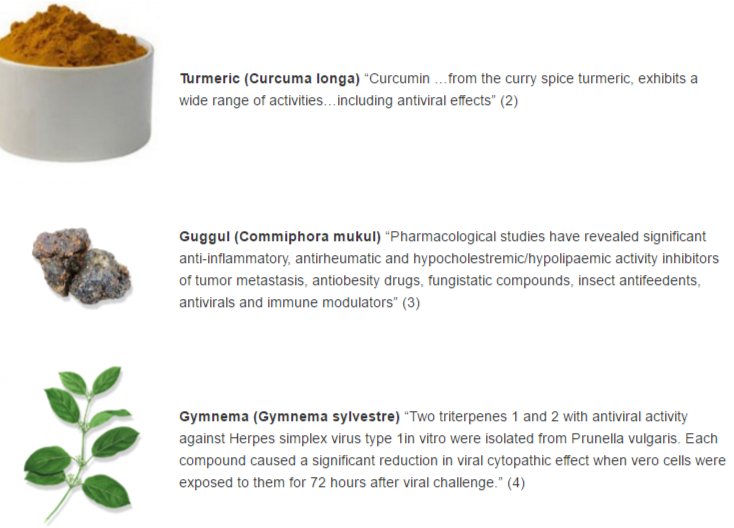
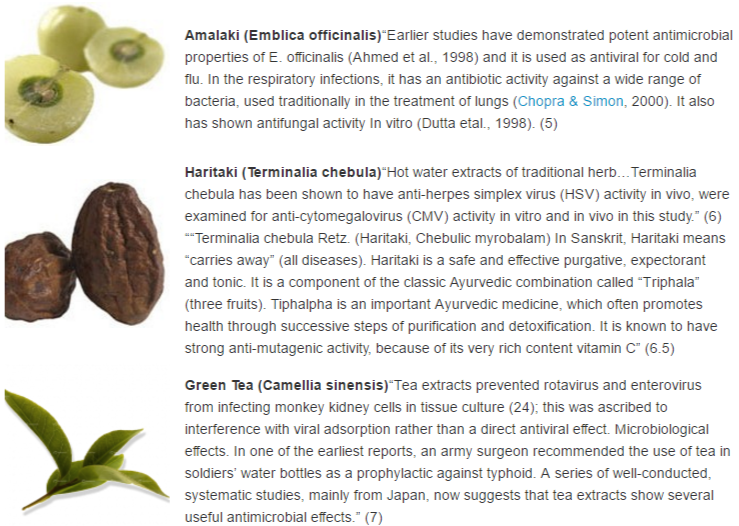
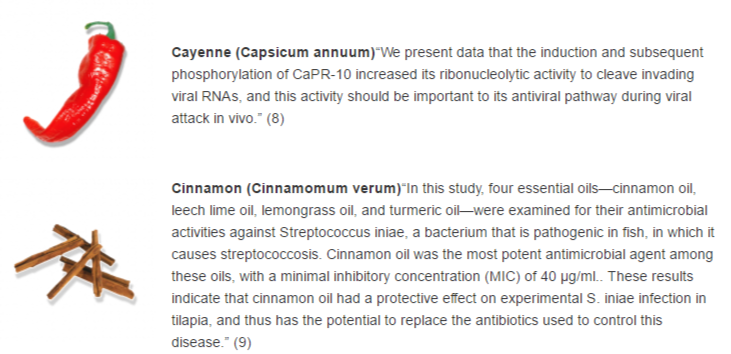
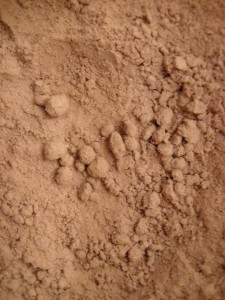 Cocoa “Cocoa is a food relatively rich in polyphenols, which makes it a potent antioxidant. Due to its activity as an antioxidant, as well as through other mechanisms, cocoa consumption has been reported to be beneficial for cardiovascular health, brain functions, and cancer prevention. Furthermore, cocoa influences the immune system, in particular the inflammatory innate response and the systemic and intestinal adaptive immune response. Preclinical studies have demonstrated that a cocoa-enriched diet modifies T cell functions that conduce to a modulation of the synthesis of systemic and gut antibodies.” (10)
Cocoa “Cocoa is a food relatively rich in polyphenols, which makes it a potent antioxidant. Due to its activity as an antioxidant, as well as through other mechanisms, cocoa consumption has been reported to be beneficial for cardiovascular health, brain functions, and cancer prevention. Furthermore, cocoa influences the immune system, in particular the inflammatory innate response and the systemic and intestinal adaptive immune response. Preclinical studies have demonstrated that a cocoa-enriched diet modifies T cell functions that conduce to a modulation of the synthesis of systemic and gut antibodies.” (10)
Fish Oils (Essential Fatty Acids/EFAs/DHA,EPA/Omega3s) we have used in our group for over a decade now with great success: “Antibacterial, anticoagulant, antifungal, antimalarial, antiplatelet, antituberculosis, or antiviral activity was reported for 35 marine chemicals. An additional 20 marine compounds were shown to have significant effects on the cardiovascular and nervous system, and to possess anti-inflammatory or immunosuppressant properties.” (11)
While the essential nutrients and botanicals mentioned above have no known side effects and are food that can and are used daily in some parts of the world, there can be serious adverse effects of long term use of drug antivirals including liver damage, myopathy, neuropathy (dysfunction of the nerves) pancreatitis, lipodystrophy, mitochondrial toxicity, hypersensitivity and reversible renal impairment.
Side effects of long-term oral antiviral therapy for hepatitis B.
Side effects of antiviral drugs
Side Effects of Long Term HIV Antiviral Use
Adverse effects of antiviral therapy
So while we weigh the pros and cons prior to medicating, we should add to the equation Eastern medicine; the use of food to provide the body with what may be lacking to help the body heal itself. If this happens it would be done through the use of the “internal pharmacy.”
Perhaps the most powerful pharmacy is the human body, and perhaps as well the most powerful drugs are growing naturally on planet Earth. It appears the emergence of “superbugs” (12) is from overuse of prescription antiviral and other medications. So ask not just “which is healthier and has less risk of side effects?” but also “which is more effective for the general population?” and the most logical answer will include the use of natural antivirals, antibacterials, anti-fungals etc. from essential nutrients and botanicals. Ayurveda should continue to be a growing area of interest in Western medicine.
In the mixed up world we live in where anything that comes in a fast food wrapper is not analyzed by the consumer but natural foods are, we should change the view of “complimentary” medicine as man made drugs when essential nutrients are not enough -and not the other way around.
Once again, perhaps Mother Nature does know best.
References:
1. Essential Oils of Aromatic Plants with Antibacterial, Antifungal, Antiviral, and Cytotoxic Properties –an Overview
Jürgen Reichlinga Paul Schnitzlerb Ulrike Suschkea Reinhard Sallerc
a Institute of Pharmacy and Molecular Biotechnology, Department of Biology,
b Hygiene Institute, Department of Virology, University of Heidelberg, Germany
c Institute of Complementary Medicine, Department of Internal Medicine, University Hospital Zurich, Switzerland
2. Curcumin inhibits herpes simplex virus immediate-early gene expression by a mechanism independent of p300/CBP histone acetyltransferase activity.
Kutluay SB, Doroghazi J, Roemer ME, Triezenberg SJ.
Graduate Program in Cell and Molecular Biology, Michigan State University, East Lansing, MI 48824, USA.
3. α-GLUCOSIDASE AND CHYMOTRYPSIN INHIBITING LIGNANS FROM COMMIPHORA MUKUL
Muhammad Athar Abbasi†, Viqar Uddin Ahmad*‡, Muhammad Zubair, Shamsun Nahar Khan, Muhammad Arif Lodhi and M. Iqbal Choudhary
HEJ Research Institute of Chemistry, International Center for Chemical Sciences, University of Karachi, Karachi-75270, Pakistan
4. Isolation and antiviral activity of the gymnemic acids
J. E. Sinsheimer, G. Subba Rao, H. M. McIlhenny, R. V. Smith, H. F. Maassab and K. W. Cochran
Cellular and Molecular Life Sciences Volume 24, Number 3, 302-303, DOI: 10.1007/BF02152834
5. ANTIMICROBIAL ACTIVITIES OF EMBLICA OFFICINALIS AND CORIANDRUM SATIVUM AGAINST GRAM POSITIVE BACTERIA AND CANDIDA ALBICANS SABAHAT SAEED* AND PERWEEN TARIQ
Department of Microbiology,
University of Karachi, Karachi-75270, Pakistan
6. Prophylactic treatment of cytomegalovirus infection with traditional herbs.
Yukawa TA, Kurokawa M, Sato H, Yoshida Y, Kageyama S, Hasegawa T, Namba T, Imakita M, Hozumi T, Shiraki K.
Department of Virology, Toyama Medical and Pharmaceutical University, Japan.
6.5 Compilation of Bioactive Compounds from Ayurveda
1Venom and Toxin Research Programme, Department of Anatomy, Yong Loo Lin School of Medicine, National University of Singapore, Singapore – 117597
2Department of Physiology, Yong Loo Lin School of Medicine, National University of Singapore, Singa
7. Antimicrobial Properties of Tea (Camellia sinensis L.)
J. M. T. HAMILTON-MILLER*
Department of Medical Microbiology, Royal Free Hospital School of Medicine, London NW3 2QG, United Kingdom
8. Pathogenesis-related protein 10 isolated from hot pepper functions as a ribonuclease in an antiviral pathway
Chang-Jin Park, Ki-Jeong Kim, Ryoung Shin, Jeong Mee Park, Yun-Chul Shin, Kyung-Hee Paek
The Plant Journal Volume 37, Issue 2, pages 186–198, January 2004
9. Potential of cinnamon (Cinnamomum verum) oil to control Streptococcus iniae infection in tilapia (Oreochromis niloticus)
Pongsak Rattanachaikunsopon and Parichat Phumkhachorn
Fisheries Science Volume 76, Number 2, 287-293, DOI: 10.1007/s12562-010-0218-6
10. The effects of cocoa on the immune system. Front Pharmacol. 2013 Jun 4;4:71. doi: 10.3389/fphar.2013.00071. eCollection 2013
11. Marine Pharmacology in 2000: Marine Compounds with Antibacterial, Anticoagulant, Antifungal, Anti-inflammatory, Antimalarial, Antiplatelet, Antituberculosis, and Antiviral Activities; Affecting the Cardiovascular, Immune, and Nervous Systems and Other Miscellaneous Mechanisms of Action
AlejandroM. S. Mayer and MarkT. Hamann
Marine Biotechnology Volume 6, Number 1, 37-52, DOI: 10.1007/s10126-003-0007-7
12. Losing Touch in the Era of Superbugs?
Leif Hass, MD Alta Bates Summit Medical Center, Oakland, California Leif Hass, MD, Foundation Inpatient Team, 400 34th St, Oakland, CA 94608
Annals of Family Medicine 8:461-463 (2010)
© 2010 Annals of Family Medicine, Inc.
doi: 10.1370/afm.1164


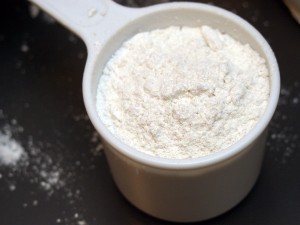


Lucia, your daughter is so precious and I can relate so much to the video of her stimming vocally after she was diagnosed. I, too, believe in the power of NV as a strong antiviral and I am so excited to see the changes Keira has made already. I can’t wait to see her updates. My son also had lots of vaccines in one day and there is no doubt in my mind he was just overloaded with virus and toxins. Congratulations on getting the Spanish NV group started, as well!
Hi…it’s so heartbreaking to see what vaccines are doing to our children. My son too was vaxd until 3…he was never diagnosed with autism but our pedi. wanted him evaluated. We walked out of his office & never returned, we felt getting a diagnosis was not going to help since we did not have insurance. We stopped all vaccines and came accross the GAPS diet online. Yesterday was his 1yr anniversary on the diet and he is a different little boy. Chronic watery stools and no poop for days gone, anger gone, meltdowns gone, anxiety gone, unhappiness gone, aggressivenes gone, being in his own world gone, “funny” accent gone, personal space issues with strangers and classmates gone, constant problems in preschool gone, total lack of interest in peers gone, he now has “best friends”, I’d ask him do you love me always got NOs, he was always UNHAPPY and miserable, I can go on and on. I must say the biggest reward is his happiness, his laughs, his smiles, his silly jokes. I promise never to forget all of the miracles. He was always breastfed and had always been on a healthy diet but he had gut issues. I believe they got worse as we introduced dairy wheat and more vaccines into his little body. To be honest he was driving me crazy. At one point I was convinced he had to be bipolar and or had oppositional disorder. We are also a Bilingual family. Dr. Natasha Campbell-McBride is the author of the book Gut & Psychology Syndrome (GAPS). She used food and a few supplements to get her son out of a severe autistic condition. I hope this information helps your little girl. Pearl
Hi Pearl,
In general I’d say our population is more aware of food labels and healthy eating than most. I recommend a healthy diet as clean as possible, but we know that alone may not be an answer. Some are recommended to try restrictive diets, even when there are no food allergies. But you have to then worry about creating more issues. GAPS for the most part seems like a healthy diet but you may want to read this page https://pursuitofresearch.org/can-healthy-food-be-illegal/
Perhaps it’s not removing foods from the diet, but which foods are added for more benefits? There is evidence that specific nutrients found in foods support the body in numerous ways including cognition https://pursuitofresearch.org/nutrition-cognition-research-articles/ Or perhaps it has to do with balancing gut bacteria, as there is that gut brain connection https://pursuitofresearch.org/2014/01/13/food-changes-gut-bacteria-as-quick-as-a-day/